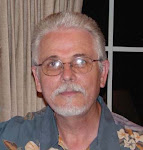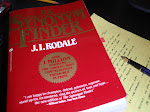
Do you have any keepsakes? You know, a memento, something you hold dear, or something you picked up or was given at a special time. Something you wouldn’t sell or give away, but will pass it along to a special person someday.
Have you ever lost a keepsake? I lost a pocketknife once, and looked for days and then years for it. I whined and cried around so much my wife bought me a new one, but you and I know that just isn’t the same. Then one day I put on a suit I hadn’t worn for years, and there it was. I was like a kid. Just goes to show you how often I wear a suit now that I am out of the corporate world.
Do women have more keepsakes than men? I suspect some do. You wouldn’t think so if you walked into my office. Just inside the door on the left is a shelf full of my treasures. I was a navigator on a ship, and there is a replica sextant there along with my collection of compasses, with one special compass my Uncle gave me when I was a kid.
My Dad’s “spy” camera is there. Never mind that you can’t buy film for it anymore, I cherish it anyway.
Along with the pocket watch my Granddaughter gave me are my shells from the Persian Gulf, and my spear points from Africa, my lighter with the engraving of my ship on it, and a fly I caught a huge bass with many years ago.
Hidden away are my fossil collection and my arrowheads, and in my bedside table is the bible my Great-Grandfather carried with the cigarette papers still marking his place.
Do young people have keepsakes? Maybe it’s something we have to teach them about, like the stories of our past. I hope the poems I write will be a keepsake for my children, and they will want to pass them along.
I guess the reason I got onto this subject is because I talked to my Aunt the other night, and she and her girls are writing a cookbook together. My Aunt is a wonderful cook, and this will be something special. This cookbook will be written from notes on stained paper that have been passed down, and perfected by loving hands. It will be a gift to cherish.
I believe in keepsakes. They are our connection to other times, other places and other people long gone. They help to illustrate the stories that echo over the years and live in our hearts, and are passed from mouth to ear. A keepsake is a poem just waiting to be written.
Have you ever lost a keepsake? I lost a pocketknife once, and looked for days and then years for it. I whined and cried around so much my wife bought me a new one, but you and I know that just isn’t the same. Then one day I put on a suit I hadn’t worn for years, and there it was. I was like a kid. Just goes to show you how often I wear a suit now that I am out of the corporate world.
Do women have more keepsakes than men? I suspect some do. You wouldn’t think so if you walked into my office. Just inside the door on the left is a shelf full of my treasures. I was a navigator on a ship, and there is a replica sextant there along with my collection of compasses, with one special compass my Uncle gave me when I was a kid.
My Dad’s “spy” camera is there. Never mind that you can’t buy film for it anymore, I cherish it anyway.
Along with the pocket watch my Granddaughter gave me are my shells from the Persian Gulf, and my spear points from Africa, my lighter with the engraving of my ship on it, and a fly I caught a huge bass with many years ago.
Hidden away are my fossil collection and my arrowheads, and in my bedside table is the bible my Great-Grandfather carried with the cigarette papers still marking his place.
Do young people have keepsakes? Maybe it’s something we have to teach them about, like the stories of our past. I hope the poems I write will be a keepsake for my children, and they will want to pass them along.
I guess the reason I got onto this subject is because I talked to my Aunt the other night, and she and her girls are writing a cookbook together. My Aunt is a wonderful cook, and this will be something special. This cookbook will be written from notes on stained paper that have been passed down, and perfected by loving hands. It will be a gift to cherish.
I believe in keepsakes. They are our connection to other times, other places and other people long gone. They help to illustrate the stories that echo over the years and live in our hearts, and are passed from mouth to ear. A keepsake is a poem just waiting to be written.
Where are yours?
The Arrowhead
This shard of pale cream flint
taken from the shallow waters ¾
who dropped this deadly missile,
life or death tool, misplaced or
cast by bow and string
on some far ago day?
Was it stained by blood of beast or man
or forgotten in the frenzy of battle or flight?
Hours of chipping, the craft of a man,
no not savage: a tool maker, a warrior,
holding the pride of his work.
Now he sleeps with other warriors
from this valley, forgotten over the
centuries, but for this moment
he comes near and he and I
together marvel at this perfect gift
he left for me.
Robert W. Kimsey 2005









